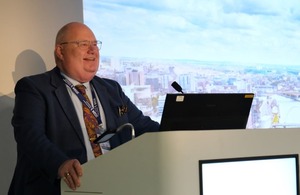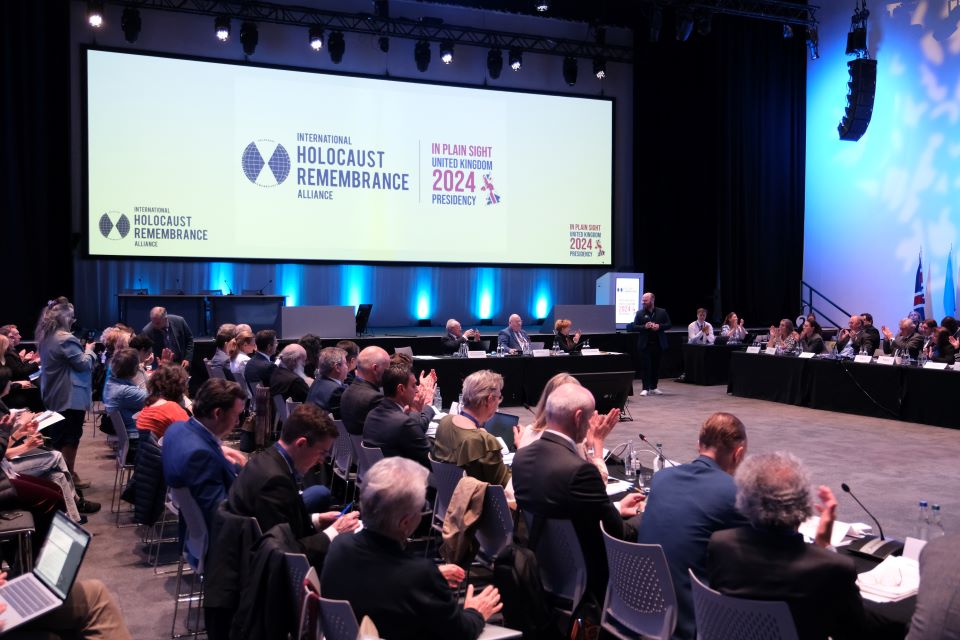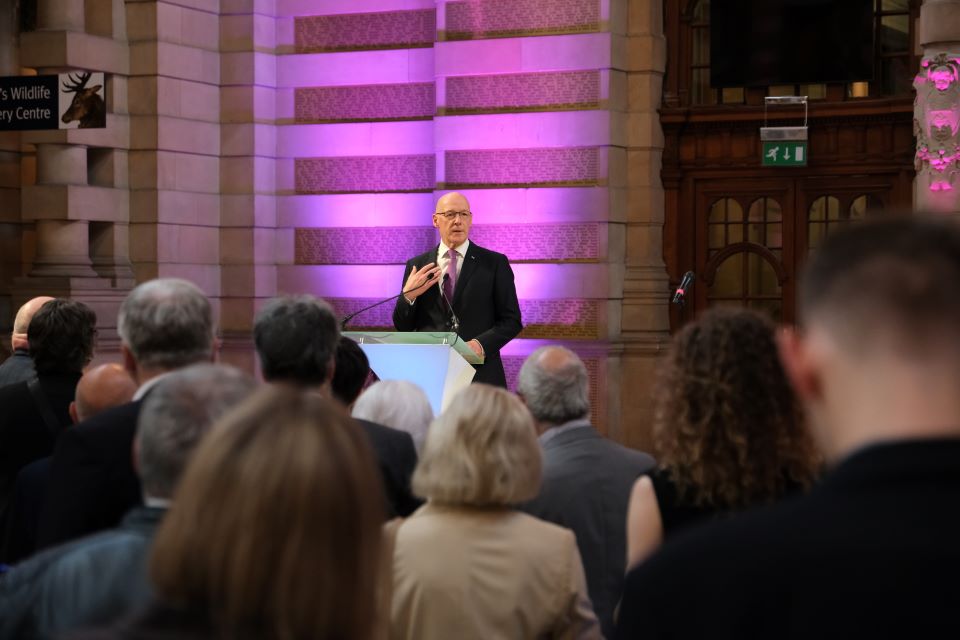International Holocaust Remembrance Alliance: Glasgow plenary
The UK hosted a successful plenary meeting of the International Holocaust Remembrance Alliance on 24 to 27 June 2024, the first during the UK’s presidency.

This page relates to a meeting that took place from 24 to 27 June 2024, during the 2022 to 2024 Sunak Conservative government, and was published later.
The first plenary meeting under the UK’s presidency of the International Holocaust Remembrance Alliance (IHRA) took place in Glasgow from 24 to 27 June, chaired by Lord Pickles, UK Special Envoy on Post-Holocaust Issues.
Delegates from the IHRA’s 35 member countries, along with representatives from observer countries and international partners came together for 4 days of discussions on Holocaust remembrance, education, and research. This followed a conference held on the 23 June 2024, which brought together teachers and educators from across Scotland to share best practice on Holocaust education.
The plenary was underpinned by the UK presidency’s theme ‘In Plain Sight’, inspired by a conversation between Lord Pickles and Holocaust survivor Ivor Perl, emphasising that the Holocaust did not happen behind closed doors.
The Hamas terrorist attack on Israel on 7 October 2023, the ongoing Israeli military operation in Gaza, and the surge in antisemitism that has emerged in their wake continued to inform discussions. Attendees shared their experiences of working to combat antisemitism and the tools and strategies they found most effective in doing so. A theme throughout the session was the importance of open dialogue – whether between communities, with young people, or with institutions and educators – in educating about and tackling antisemitism. Delegates agreed to update the IHRA’s teaching materials to more fully recognise and address the challenges of contemporary antisemitism in the current global context.
The impact of new and emerging technologies, such as artificial intelligence (AI), on Holocaust denial and distortion is a focal point of the UK’s IHRA presidency, and featured prominently in discussions. While close attention was paid to the potential dangers of AI in the facilitation of Holocaust distortion, delegates also explored the unique opportunities that AI can provide for Holocaust education and identifying and tackling distortion. Lord Pickles noted that “While AI can be a powerful tool for research and outreach, it’s crucial to address the potential for AI to be misused to perpetuate antisemitic narratives and disinformation”. Delegates committed to stepping up action and building expertise in this space, ahead of a conference on AI and distortion in the autumn.

The plenary provided an opportunity to showcase some of the UK’s pioneering work in the field of Holocaust remembrance and education. As part of the UK presidency’s ‘My Hometown’ project, which encourages students in IHRA member states to undertake research into the impact of the Holocaust in their local area, delegates heard from Nottingham-based teacher Dominic Townsend, who works with d/Deaf children. Dominic showcased his work with students and the local d/Deaf community to create the first dedicated sign language lexicon for use in Holocaust education. His students were able to utilise this in their own research project, which brought them into contact with a Holocaust survivor living in their area.
At Scotland’s national football stadium, Hampden Park, Lord Pickles launched a guide to implementation of the IHRA working definition of antisemitism for sporting institutions, alongside the Independent Adviser to the Government on Antisemitism, Lord Mann. Delegates also visited Garnethill Synagogue and the Scottish Jewish Heritage Centre, where they had the opportunity to engage directly with representatives of Glasgow’s Jewish community and learn more about the local history.

First Minister of Scotland John Swinney speaking at the plenary.
Delegates also had the opportunity to hear from the First Minister of Scotland, John Swinney MSP, at Kelvingrove Art Gallery and Museum, who quoted author and Holocaust survivor Primo Levi: “the Holocaust is a page from the book of humanity from which we should never remove the bookmark of memory.” Lord Pickles echoed the First Minister in his closing remarks, when he said, “the truth, my friends, is this: the IHRA is the bookmark”. Guests also heard from Geraldine Shenkin, daughter of Holocaust survivor and artist Marianne Grant whose artwork is on permanent display at the museum.
The next plenary, to be held in London this December 2024, will build on the outcomes from the Glasgow meeting, addressing the unique challenges of the current geopolitical and technological contexts.